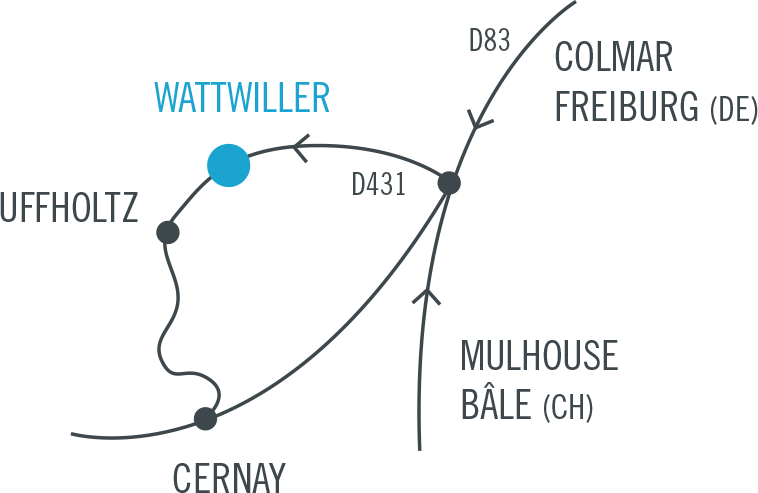In the beginning was the wind … then the shipwreck … then the sand … then the jungle … then solitude … and maybe paradise.
In a closed and dark space, a growing sound, a repetitive, enveloping swell, catches us and takes us to new shores. Then a curious privateer appears in the neighbouring work, inviting us to explore a territory where a strange rain hut, masks and other objects are found. He loses us in a jungle of leather or plastic punctuated by sweet wahines with hypnotic swaying. The itinerary continues on more hostile islands. We come across prisoners off the Australian coast, a zany individual stranded on a concrete island, young women isolated in Brittany or a family confined to an arm of the Rhône. Inked, woven, shiny, bluish cartographies lead us towards distant dreams when a cloud of sonorous shells opens towards joyful horizons.
Composed as a journey and born in the spring of 2020, during a global experience of confinement, where isolation and solitude were prevalent, Our islands is also the continuation of The Cloud Atlas, the exploration of the multi-components of water forming visual, natural and imaginary landscapes that inhabit everyone.
Piece of land surrounded by water, islands of treasures, forgotten, abandoned, mysterious, fantasized, the subject has an inexhaustible narrative potential and unfolds as much in literature as in the visual arts. In order to reach Ithaca, Ulysses travels through various archipelagos for many years, Robinson Crusoe founds one of the major myths of the explorer and of a certain vision of elsewhere, Marivaux sets his scene in an island landscape for a social utopia.
Between tragedy and burlesque, documentary and fiction, 20 artists are invited to take part in this journey to the land of islands.
Our islands is a subjective vision of insularity and its various metaphors; the artists themselves are not or not very insular, but give us their different visions of shipwreck, robinsonnade, exoticism, confinement and utopias.
Visual : Pauline Delwaulle, Haïkus cartographiques (extract), 2019.
Courtesy of the artist © Pauline Delwaulle

